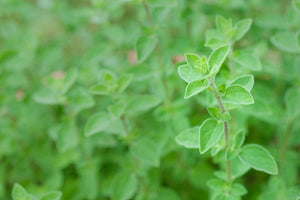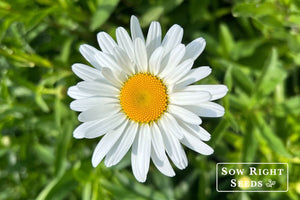Epsom Salt Uses: Tomato Cure-all or Garden Myth?
DiseasesI was curious when a fellow gardener exclaimed that their tomato leaves were turning yellow and they needed to spray with an Epsom salt solution. Was Epsom salt the missing ingredient in my garden?
The promises of Epsom salt are tantalizing—bushier plants, more vibrant blooms, improved seed germination, and even pest control. But do these claims hold up under scrutiny?

Home gardeners encounter a multitude of tips and tricks, but how many of these have a solid grounding in science? One gardening tip that has garnered much attention is using Epsom salt for tomatoes. Intrigued by the claims, I decided to investigate. Could this common household item really transform my garden?
In this article, we'll explore Epsom salt uses in the garden, answer frequently asked questions, and discuss potential cautions. By the end, you'll be equipped to decide whether Epsom salt is a miracle cure or just another gardening myth.
What Is Epsom Salt?
Epsom salt is a naturally occurring mineral compound comprised of magnesium, sulfur, and oxygen. Its name derives from the town of Epsom in Surrey, England, where it was initially discovered in natural springs. The chemical name is magnesium sulfate.
Epsom Salt Uses
It’s tempting to think that Epsom salt must be good for your garden because it is naturally occurring. Not so quick. Just because something is natural doesn’t mean that applying more of it is helpful.
Magnesium, one of its key components, is an essential nutrient for both plants and humans. It plays a crucial role in various biological processes, including photosynthesis in plants and muscle function in humans. Sulfur, the other primary component, is vital for plant protein production and overall growth.
Epsom salt's expected benefits in gardening include helping plants grow bushier, produce more flowers, and have better color. It can also help with seed germination, nutrient absorption, and repelling slugs and other pests.
So, does Epsom salt really help with these issues? Let’s take a look at each of these claims.

Bushier Plants
What does this vague claim mean? Do bushier plants have more leaves? While magnesium is an essential plant nutrient, adding more doesn’t equate to more leaf growth. Nitrogen is the macronutrient that results in increased foliage. Supplementing plants with more nitrogen can result in more foliage and bushier growth. An additional tip for some flowers and plants is to cut them back to increase side branching, which results in bushier plants.
More Flowers
What do sulfur and magnesium have to do with producing more flowers? Magnesium does play a role in the plant’s normal metabolism. However, phosphorus is the essential nutrient for flowering plants. If you want your plants to produce more flowers, make sure they have nutrient-rich soil and plenty of sunlight.
Better Color
The claim of better color could be referring to yellow leaves. Epsom salt does have magnesium, which is required for chlorophyll formation. A sign of magnesium deficiency is leaves with an interveinal chlorosis pattern. This means the veins are green, but the tissue between the veins is yellow.
So, will Epsom salt make your plants greener? Only if the true cause of your yellow leaves is a lack of magnesium. If that’s the case, you can use an Epsom salt spray for your plants. Mix 1 Tablespoon with 1 gallon of water and spray on the leaves for quick absorption. Be careful with a foliar spray, as there is the risk of leaf scorch.
You will also want to test your soil, as foliar sprays don’t address the nutrient imbalances in the soil. If there is a magnesium deficiency, there are probably other problems as well. Sandy and acidic soils are more likely to have a magnesium deficiency than loamy and clay soils.
Blossom End Rot
Blossom end rot is a nutrient deficiency caused by not having enough calcium. Calcium deficiency is usually caused by water issues. Epsom salt doesn't have calcium, and too much magnesium can inhibit calcium absorption.
Improve Seed Germination
This one has me stumped. A seed already has everything it needs to sprout and grow. You can even sprout seeds on a wet paper towel. Some seeds need scarification or cold stratification to help them germinate, but Epsom salt is not necessary for germination.

General Fertilizer
The reason fertilizers are applied is to increase the amount of nutrients available to the plants. Magnesium and sulfur aren’t “all-purpose” nutrients that must be regularly added to soil. Start with a soil test before adding any additional fertilizer.
Repel Pests
The ability of Epsom salt to repel pests is an appealing claim. This one probably comes from the idea that sulfur repels chiggers, spider mites, and some other pests. However, to be truly effective, you will want to use a product specifically designed for combating these annoying pests. The amount of sulfur and the way it is applied will make a difference in its effectiveness.
Nutrient Absorption
Magnesium plays a role in plants’ biological processes, and sulfur is an essential component of proteins. However, very small amounts of these micronutrients are needed for healthy plant growth. Furthermore, too much magnesium will compete with the uptake of calcium.
Change Soil pH
Sulfur can acidify soil when it forms sulfuric acid. However, Epsom salt does not form sulfuric acid in the soil and does not affect soil pH. You can add more effective amendments if you need to change the soil pH. You can read more about soil pH and amendments to make.

Epsom Salt FAQs
Can I just sprinkle Epsom salt on plants?
Sure, you could just sprinkle Epsom salt around your garden, but why? It is water-soluble and will quickly wash away, so know why you are applying it before you sprinkle it around.
Can you put too much Epsom salt on tomato plants?
Too much of a good thing is too much. Too much magnesium sulfate can cause boron, iron, manganese, potassium, and calcium deficiencies.
Epsom Salt Cautions:
With all these Epsom salt uses, is there any harm in using Epsom Salt in your garden? There are a few concerns that you should be aware of. Adding additional things to your soil can affect the groundwater. Too much Epsom salt can reduce beneficial microbes, such as nitrogen-fixing bacteria. Too much can also increase the release of aluminum from the soil, making this toxic metal available to plants and fish. Another concern is that magnesium and calcium compete with each other for absorption. So, adding extra magnesium can inhibit a plant's ability to absorb calcium.
Should I Use Epsom Salt in My Garden?
So, after all this, will I be adding Epsom salt to my garden beds? No. I’ll save my Epsom salts for a relaxing bath soak after a day of working in the garden.
What should you do instead? Pay attention to your garden soil. As Patty says, “Add compost.” Adding a layer of compost to your garden can be the perfect boost your plants need during the growing season. Then, follow a sensible tomato fertilizing schedule.
Keep checking for pests and diseases and use a targeted approach to eliminate them.
Then, try to diagnose the actual issue. Are the leaves yellow? Is there too much water? Are there pests? Is there a disease?
There are many uses for Epsom salt but it isn't a garden cure-all.
Always test your soil first to see if there is a nutrient deficiency or a reason to make amendments.
Written by Beverly Laudie
Popular Posts
-

How to Grow Oregano From Seed For Years of Reliable Harvest
-

From Seed to Blossom: How to Grow and Care for Shasta Daisies






Leave a comment